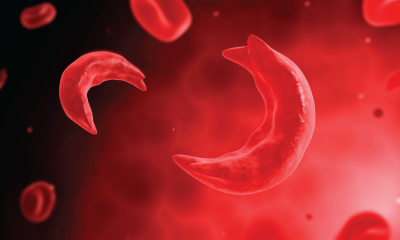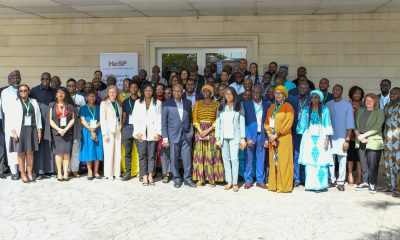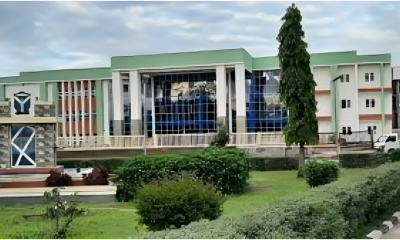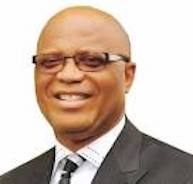Health
Expert Identifies Partnership as Key to Health Sector Devt
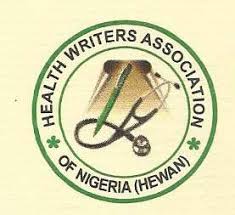
By Laide Akinboade, Abuja
An expert in Nigeria’s health sector, has identified partnership as the answer to achieving good outcome in the development of the sector.
Director General of the National Institute for Pharmaceutical Research and Development (NIPRD), Dr.
Obi Adigwe, stated this while responding to questions from newsmen at the formal launch of the 5-year Strategic Plan of the Institute, in Abuja.The Strategic Plan which is the second ever developed by the Institute is to enable NIPRD achieve its mandate to build a center of excellence for Research and Development (R&D) of phytomedicines, pharmaceuticals and biological products.
While noting that collaboration and partnership is key to achieving good outcomes in the health sector, Adigwe disclosed that the 5-year Strategic Plan was developed with technical and financial support of the World Health Organisation (WHO) and other partners.
He revealed that: “In the three years, NIPRD has partnered with governments and agencies across the world, including India, USA, South Africa, UK, Russia, Cuba, Ghana and Canada. That is why we have experience tremendous growth and achieve the milestone successes we recorded in the past three years since our management came board.
“The Strategic Plan will enable us to remain focused on our key mandate to improving the health status of Nigerian through quality research and development in the area of phytomedicines and other pharmaceutical products.”
Since he became the DG of NIPRD, Adigwe, has initiated and led engagement initiatives with over 70 entities in a bid to improve government’s effectiveness in achieving multi-sectoral development objectives using systems approach.
General News
Why Many Avoid Seeing Dentists Until their Conditions Deteriorate — Doctor
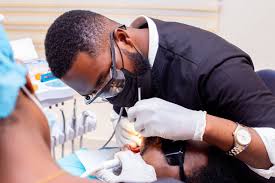
A dentist, Dr Olamilekan Fatokun, on Friday said that many people stay away from dental facilities until their conditions deteriorate, hinging the trend on high cost of treatment.
Fatokun, who highlighted the importance of regular dental visits, however, said that opportunities for free dental care were useful in enabling people to take action before it became too late.
He spoke in Lagos at the 10th edition of the Gbolahan Yishawu Foundation’s free dental outreach programmme.
“Many people avoid seeing dentists until their conditions deteriorate due to the high cost of treatment.
‘’This initiative gives them access to the care they need before it becomes too late,” he noted,
Fatokun urged residents to prioritise check-ups every six months, even without symptoms.
Another dentist, Dr Banjo Oluwasegun, expressed concerns over the High Blood Pressure (HBP) levels observed in many of the residents present at the event.
“Our minimum blood pressure reading was 150, even a 15-year-old recorded 145, which is alarming.
‘’We need to intensify awareness on general health, not just dental hygiene,” he warned.
Oluwasegun, however, lauded the increasing awareness among residents, noting a shift from heavy tooth extractions in earlier editions to more preventive care like fillings and oral cleaning.
“On the first day alone, we recorded over 50 denture fittings; people are becoming more proactive with their oral health, thanks to consistent outreach and education,” he said.
Gbolahan Yishawu, Founder of the NGO that organised the programme, said that more than 12,000 constituents of Eti-Osa Constituency 02 had benefited from the Foundation’s free dental outreaches.
Yishawu, a lawmaker representing Eti-Osa Constituency at the Lagos State House of Assembly, described each edition of the outreach as critical, emphasising the need to bring relief to residents, who might not be able to afford quality dental care.
“Every single edition is important to us. It gives us the opportunity to bring comfort and relief to our constituents.
‘’By the end of this year’s programme, we would have successfully carried out over 15,000 procedures since inception,” the lawmaker stated.
Two beneficiaries expressed gratitude and lauded the initiative, saying the programme had brought relief to many residents.
One of them, Mrs Ihedioha Pauline, shared how she had asked her son to wait for the outreach instead of paying a hefty hospital bill for a toothache.
“I could not afford the hospital fee, but thanks to this programme, my son is now fine, and I also came for my own dental issue,” she said.
Another beneficiary, Mr Adesola Ekemode, commended the lawmaker’s dedication.
“My entire family has benefited from his programmes over the years; I pray he continues in office to complete more of his projects. This initiative touches both young and old,” he said.
The programme offered a wide range of dental treatments including extractions, fillings, scaling and polishing, surgical procedures, root canal therapy, and dentures.
It also offered referrals for complex procedures that could not be handled on-site.
Patients were referred to clinics where they received treatment at no cost, with all bills covered by the initiative. (NAN)
FEATURES
Examining Nigeria’s Approach to Defeating Sickle Cell Disease

Each year, the globe commemorates World Sickle Cell Day (WSCD) on June 19, an event to raise awareness about Sickle Cell Disease (SCD), one of the most common hereditary blood disorders in the world.
The theme of the global observance for 2025 is “Global Action, Local Impact: Empowering Communities for Effective Self-Advocacy”, resonating across the corridors of academia, clinical settings and advocacy platforms.
SCD is a group of inherited blood disorders characterised by abnormally shaped red blood cells that resemble crescents or sickles.
The cells can block blood flow, causing severe anaemia, episodes of severe pain, recurrent infections, as well as medical emergencies like strokes, sepsis or organ failure.
In Nigeria, home to the largest population of people affected by SCD, the day carries a deeper, more urgent significance.
The burden of Sickle Cell Disease (SCD) in the country continues to strain the nation’s healthcare resources and families affected by the disorder.
This growing challenge calls for comprehensive and sustained intervention across prevention, treatment and education.
Without urgent action, including newborn screening, public awareness and access to advanced therapies, the impact on families and the healthcare system will continue to deepen.
It is a timely call for national unity in curbing the spread of this life-altering disease and improving the lives of those who live with it daily.
With an estimated 150,000 Nigerian children born each year with the disorder, according to Harvard’s Dr Maureen Achebe, the country finds itself at the epicenter of a public health crisis.
While prevention remains the ideal, early diagnosis through newborn screening is a practical and effective tool that could reduce mortality among children under five.
Achebe, a renowned hematologist and global health equity advocate from Harvard, said “these babies look normal at birth”, warning that without early detection, mortality rates could reach 50–80 per cent before the age of five, a heartbreaking figure in a country with already strained healthcare infrastructure.
“Newborn screening helps identify those with SCD early so they can receive care and therapy to live normal lives,” she added.
She advocated nationwide newborn screening programme, alongside routine preventive care such as vaccination, folic acid supplementation, and prophylaxis against infections like pneumonia and malaria.
She also dispelled cultural myths surrounding the disease, stating unequivocally that SCD is an inherited genetic disorder, not a curse or result of witchcraft, a reminder of the persistent social stigma surrounding the condition in many communities.
At the heart of Nigeria’s strategy to reduce the prevalence of SCD is prevention, and according to Prof. Patricia Lar, Acting Vice-Chancellor of Yakubu Gowon University, Abuja (formerly UniAbuja), genetic compatibility awareness must be the foundation of preventive approach.
Lar spoke through Prof. Titus Ibekwe, the Provost of the College of Health Sciences, during a public lecture titled “The Evolving Therapeutic Landscape in Sickle Cell Disease,”
She emphasised the importance of prevention as the most effective strategy in eliminating Sickle Cell Disease (SCD) in Nigeria.
She stressed that “seriously considering partner compatibility could reduce the disease to only carriers, discouraging marriages between incompatible partners.
“If we maintain this precautionary measure over time, we will be able to eliminate SCD or reduce it to a minimum world-wide ,” she added.
This message is echoed in the advocacy efforts of Mrs Aisha Edward-Maduagwu, the National Coordinator of the Association of People Living with Sickle Cell Disorder.
She called for the strict enforcement of genotype compatibility checks, especially in states like Anambra, where legislation exists but implementation lags.
“Our association has made significant strides advocating for the rights and welfare of people living with SCD.
“We urge prospective couples to prioritise genotype testing and ensure compatibility before marriage,” she said.
Beyond bone marrow transplants, gene therapy is emerging as the next frontier, according to Lar.
“This revolutionary treatment aims to correct the sickle cell gene itself, potentially offering a one-time cure.
“This is where the future of SCD treatment lies,” she noted. “It modifies the faulty gene to function like a normal gene, potentially eliminating the disease at its source.”
In recent years, the emergence of curative treatments, though limited by cost, has brought renewed hope to families affected by SCD.
The Lagos State University Teaching Hospital (LUTH) has taken significant steps forward, with successful bone marrow transplants performed since 2024.
Dr Adeseye Akinsete, a pediatric hematologist at LUTH, confirmed that all transplanted patients are alive and well, and that the centre is preparing for a third cycle in August 2025.
“This represents a major breakthrough in the country’s medical landscape.
“We are proving that advanced therapies can be delivered locally. Nigerians are beginning to trust and participate in these programmes,” he said.
Akinsete added that LUTH also offers post-transplant support services, including virtual consultations for patients outside Lagos, and has established a dedicated transplant clinic that follows up with patients who received care both locally and abroad.
The Centre of Excellence for Sickle Cell Disease Research and Training (CESRTA) at Yakubu Gowon University is playing a pivotal role in bridging the gap between research and care.
Since its inception in 2015, CESRTA has worked to provide clinical and translational research, skills training, and community outreach.
Prof. Obiageli Nnodu, CESRTA Director and Co-Chair of the 5th Global Congress on SCD, highlighted the Centre’s collaborations with both local and international partners and its mission to make advanced SCD care more accessible and affordable.
Following the recent global congress, the Coordinating Minister of Health and Social Welfare, Prof. Muhammad Pate, announced the upgrading of CESRTA to the National Centre of Excellence for SCD Research and Training, recognising its impact on national policy, research, and education.
In spite of the scientific and medical advances, the social and economic barriers to quality care for SCD patients remain significant.
Dotun Oladipupo, Chairman of the Oladipupo Foundation in Abeokuta, medication for managing sickle cell was extremely expensive.
“Many families cannot afford life-saving therapies. This must change.”
Oladipupo called on the Federal Government to invest more in alternative medicine research, as well as to promote inclusive legislation that gives people with SCD access to equal job opportunities, education, and healthcare.
“We also need bills that protect the rights of those living with the disease, so that stigma and discrimination no longer define their everyday experience,” he said.
The unifying thread running through the events, speeches, and expert recommendations marking World Sickle Cell Day 2025 is clear: community empowerment is essential for lasting change.
Whether through genotype testing campaigns, newborn screening, accessible treatments, or public education, the solutions must be people-centered and government-supported.
As Nigeria leads the global conversation on SCD by necessity, it must also lead by example, transforming advocacy into action, policy into practice, and awareness into impact.
There is hope. There is progress. But more importantly, there is a renewed determination to ensure that future generations are born not just with knowledge of SCD, but with the power and tools to defeat it.(NANFeatures)
Health
Ogbodo Advocates Urgent Govt Action to Retain Nigerian Healthcare Workers
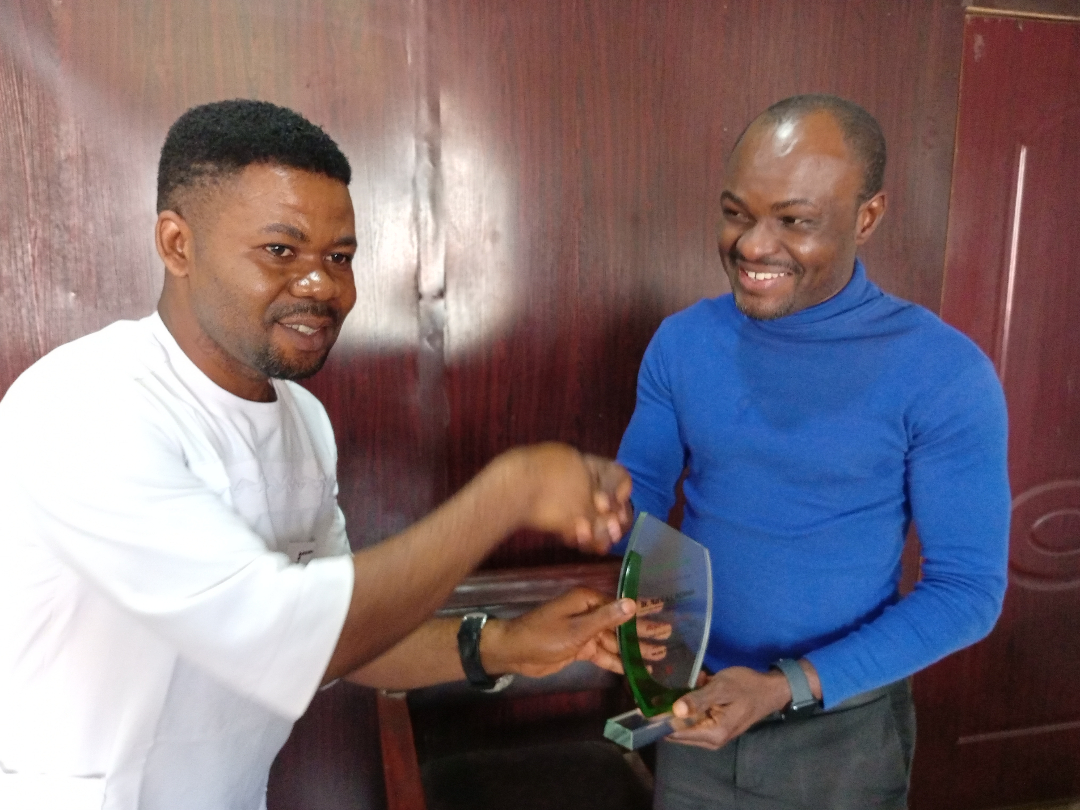
By David Torough, Abuja
The Chief Executive Officer and Medical Director of Lydia Memorial Hospital, Ugbokolo, Dr. Mark Ogbodo has urged the Federal Government to urgently address the welfare of healthcare professionals in Nigeria.
Ogbodo stated this shortly after he was conferred with an award of excellence by the Abuja Media Practitioners in Abuja on Tuesday.
The award recognised him as a media ambassador and the most media-friendly, innovative, and impactful young doctor and writer in recent times, a title that reflects his dual passion for both healthcare and public engagement.
Ogbodo stressed that without deliberate efforts to improve conditions, the country risks a deeper crisis in its health sector due to the mass exodus of medical professionals.
On the award, Dr Ogbodo expressed deep appreciation for the recognition and used the moment to shed light on what inspired his journey into healthcare entrepreneurship.
According to him, the vision to build Lydia Memorial Hospital was born out of a lifelong ambition to contribute meaningfully to the development of Nigeria’s health infrastructure.
“Growing up, one of my ambitions was to build facilities and projects in the health sector of my area of professional calling.”
He also envisioned supporting improvements in Nigeria’s security sector. However, on the educational sector, he pointed out how he has, over the years, given scholarships to underprivileged persons, and how he organised and sponsored literary competitions for his Alma mater, Unique Secondary School Makurdi, and also, a literary competition for all secondary schools in Okpokwu LGA Benue, in collaboration with the Association of Nigerian Authors.
“I had to start somewhere. So I began in Ugbokolo, a rural area that reflects many of the challenges common in underserved regions. It was important for me to contribute where help is needed the most.
“It’s about building something sustainable, something that expands access and quality. We want to go beyond Ugbokolo and replicate this model across the country,” he added.
On the biggest issue currently facing Nigeria’s healthcare system, Dr. Ogbodo pointed unambiguously to brain drain.
According to him, the flight of trained professionals, doctors, lab. Scientists, and specialists, to other countries in search of better opportunities is crippling the sector.
“The most urgent issue is remuneration. The doctors that are still here are overworked. Many are discouraged. If we don’t improve welfare packages now, we will lose more,” he warned.
He stressed that the government must act swiftly to provide incentives, career growth opportunities, and working conditions that can compete with what foreign countries offer.
On the integration of technology and innovation into healthcare delivery, Dr Ogbodo emphasised that Lydia Memorial Hospital is already taking deliberate steps in that direction.
He revealed that the hospital consults regularly with professional bodies such as the Nigerian Medical Association (NMA), Medical and Dental Council of Nigeria (MDCN), and both federal and state ministries of health to ensure compliance and adopt cutting-edge practices.
“With that level of cooperation and scrutiny, we have been able to stay ahead. Our hospital is the first in the state to be approved as a holding centre or treatment centre for infectious diseases. That speaks volumes about our commitment to innovation,” he said.
He further maintains that his vision is far from complete as he sees Lydia Memorial Hospital not just as a medical facility but as a model for what is possible when professionals take initiative and the Government supports local ingenuity.
Earlier, the secretary of the group, David Torough, speaking on behalf of the professionals, reiterated their commitment to recognizing and encouraging individuals who are making positive impacts in their communities.
He said the group has closely monitored Dr. Ogbodo’s activities over time and is pleased to recognize him as one of the most media-friendly, innovative, and impactful young doctors and writers in recent times, particularly in Benue State.

